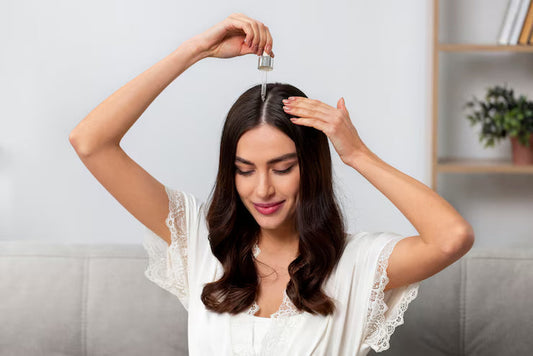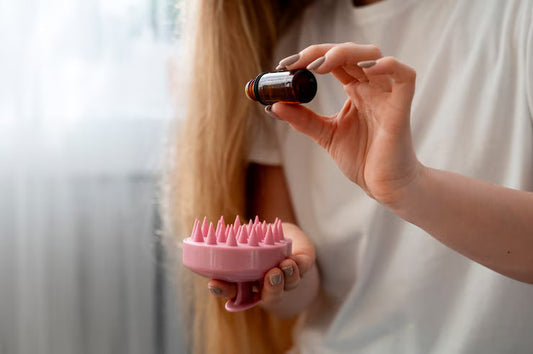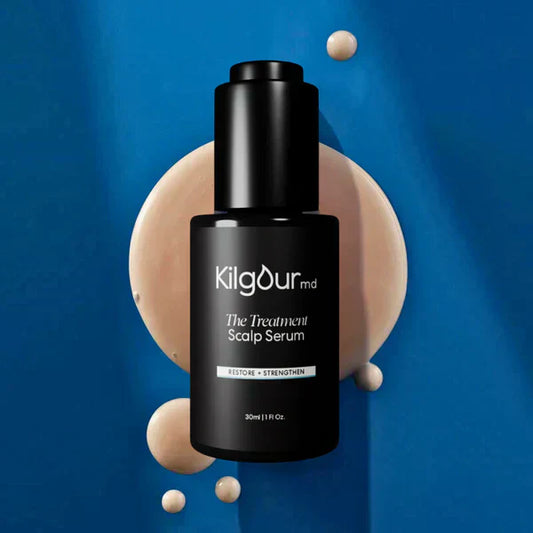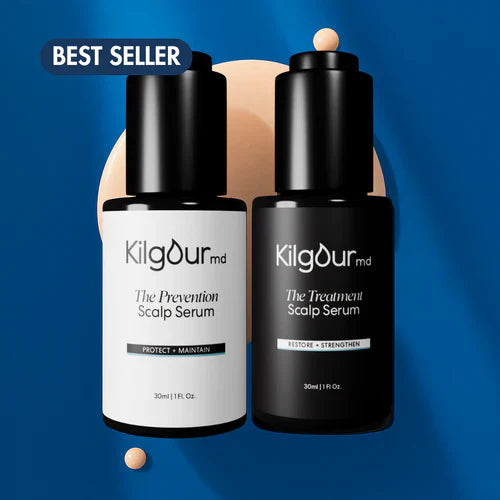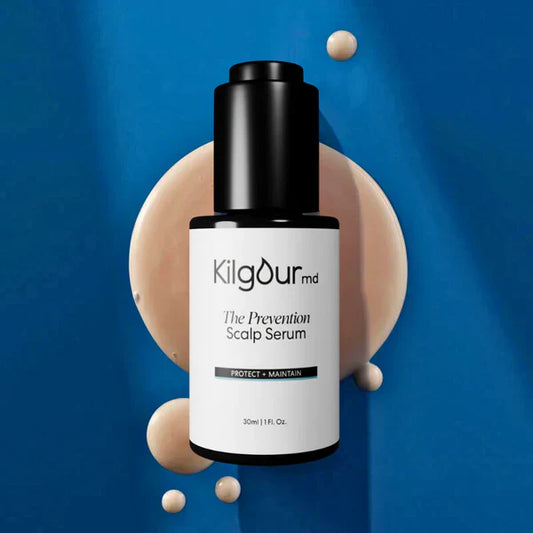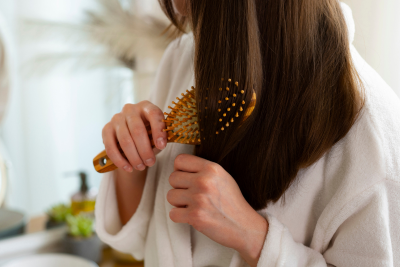
12 Hair Wellness Habits To Start In 2024
Welcome to 2024, where your hair's health is a new wealth, and we're not just talking about having a good hair day here and there. We're talking about a revolution in hair wellness that starts right at the root—literally.
In an age where self-care is paramount, your mane has taken center stage, demanding more than just a slapdash shampoo-and-go routine. It’s all about nurturing, pampering, and getting to the root of what makes hair thrive.
But where do you start, you ask? Right here, right now! This isn’t just another "top tips" list; this is your hair manifesto for the year. It's time to leave behind the hair care sins of the past and adopt 12 hair wellness habits that will lead you to the promised land of luscious locks and healthy strands.
From the wonders of scalp serums to the insider secrets of hair care maestros, we've got the lowdown on everything your hair has been thirsting for. We're not just scratching the surface; we're going deep into the follicle forests to bring you a guide that's part science, part art, and all fabulous. So, grab your favorite scrunchie, and let's unravel the mysteries of ultimate hair wellness together!
Are you ready to turn heads with hair that's not just styled, but truly, deeply, healthfully alive? Let's embark on this journey of transformation—one strand at a time.
1. Embrace the Scalp Serum Revolution
Think of your scalp like the earth in a garden. To grow beautiful flowers—or in this case, hair—you need to start with fertile ground. Scalp serums are like fertilizer for your hair. A blend of scalp serum for hair growth can work wonders, especially ones containing ingredients like rosemary, caffeine, and peptides.
These active ingredients can revitalize hair follicles, promote circulation, and kickstart hair growth. Aim to incorporate serums into your routine at least twice a week for best results, and choose a serum that suits your specific hair concerns.

2. Ingredients Matter: Choose Wisely
Flip that bottle around and read the label. You want to see things like Vitamin E for its antioxidant properties, which can combat oxidative stress that leads to hair loss. Or maybe Argan oil, which is like a quenching drink for thirsty strands.
Keratin, a protein that your hair is made of, can also reinforce the structure of your hair, making it less prone to breakage. Steer clear of harsh sulfates and parabens that can strip your hair of its natural oils.

3. A Serum for Every Scalp
Customization is key. If your scalp is on the drier side, you're looking for serums that lock in moisture without leaving a greasy residue. Ingredients like hyaluronic acid and glycerin are super hydrators.
If you’re dealing with an oily scalp, look for lightweight formulas that balance oil production without drying out your scalp. Salicylic acid and tea tree oil are great for this.
4. The Right Serum for the Right Time
Timing is everything when it comes to serum application. After washing your hair, when the cuticles are open, is prime time for applying a hair serum for hair growth.
The dampness helps distribute the serum more easily, and the open hair shafts absorb the nutrients better. Remember to start with a small amount; you can always add more if needed.

5. Men, Get In On the Action
Hair loss is a common concern among men, and the best hair growth serum for men will target common issues like receding hairlines and thinning.
Look for serums that contain minoxidil, an FDA-approved ingredient that’s proven to combat hair loss, or for a natural yet clinically proven alternative, check out KilgourMD. Consistent application can lead to visible results over time.

6. Massage Your Way to Better Hair
When you apply your serum, don't just slap it on. Take a minute to massage it into your scalp gently. This not only ensures even distribution but also boosts blood flow to the scalp, which is crucial for hair growth. Plus, it’s a stress reliever, and less stress means happier hair.

7. Don't Overdo It
More isn’t always better. Using too much serum can weigh your hair down and make it look oily. Stick to the recommended dosage—usually a few drops—and apply it evenly to avoid buildup.

8. Heat Protection is a Must
Before you reach for that hairdryer or flat iron, apply a serum that’s formulated to protect against heat damage. These serums form a protective layer over your hair shafts, keeping the moisture in and the breakage out.

9. The Diet-Hair Connection
You are what you eat, and that goes for your hair, too. Foods rich in omega-3 fatty acids, protein, zinc, and vitamins can promote hair growth and improve hair density. Consider salmon, nuts, eggs, and spinach your hair’s new best friends.

10. Get Regular Trims
No product can repair split ends, but regular trims can prevent them from traveling up the hair shaft and causing more damage. Plus, trimming promotes healthier hair growth.

11. Sleep On Silk
Silk pillowcases are smoother than cotton, which means less friction and less chance of hair breakage. They can also help your hair maintain its natural oils, keeping it smoother and less frizzy.

12. Stay Hydrated and Rested
Water and sleep are the unsung heroes of hair care. They help regulate your hormones and reduce stress, which in turn helps keep your hair growth cycle in check. Aim for 8 glasses of water a day and 7-9 hours of sleep per night for the best hair health.

Visualizing Your Hair Growth Journey
Graph: The Scalp Serum Effectiveness Over Time
Imagine a graph that climbs steadily upward, showing the improvement in hair thickness and health over months of consistent serum use.
Table: Hair Serum Ingredients and Benefits
|
Ingredient |
Benefit |
|
Peptides |
Stimulate hair growth |
|
Amino Acids |
Strengthen hair structure |
|
Natural Oils |
Hydrate and nourish |
How To Apply Serum Like A Pro
- Start with a clean scalp.
- Dispense a few drops of serum onto your fingertips.
- Gently massage the scalp in circular motions.
- Spread through to the ends if needed (for those with long hair).
- Do not rinse out; let your scalp soak in all the goodness!
And there you have it, folks! Your ultimate guide to rocking your hair wellness journey in 2024. Remember, like any good habit, consistency is the key to unlocking the luscious locks of your dreams. So, go ahead and give your hair the love it deserves with these 12 hair wellness habits. Here’s to a year of happy, healthy hair!

